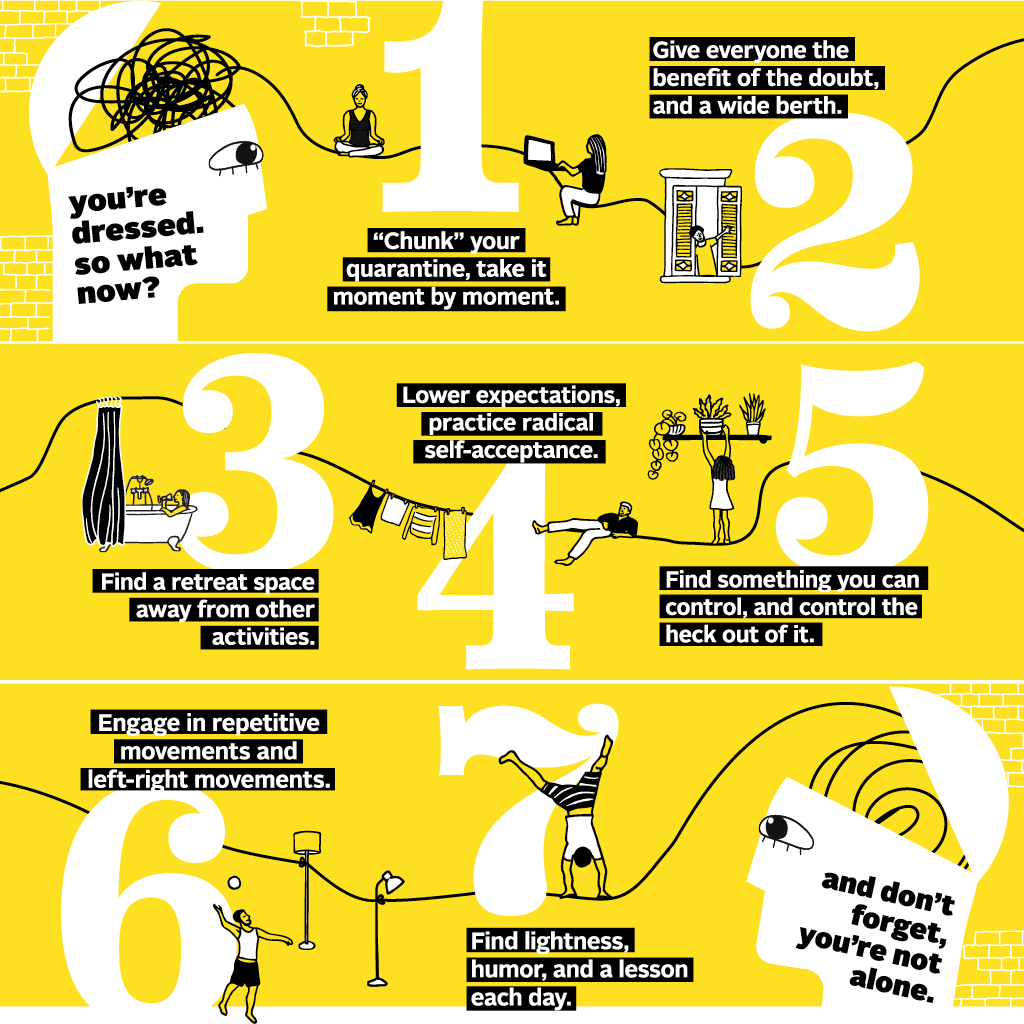
7 Mental Wellness Tips for Staying Healthy During Shelter-in-Place
The outbreak of COVID-19 and the shelter-in-place measures that have followed have been a source of stress for many. The fear and anxiety can be overwhelming, causing a strong emotional response that could lead to changes in sleep or eating patterns, difficulty concentrating, worsening of mental health conditions, and increased use of alcohol, tobacco, or other drugs.
One of the primary stressors has been the rapid and radical shift in daily routine for millions of people. With most public activities—including work and school—put on pause for the time being, many people are left with schedules that are wide open and unfamiliar.
Since self-quarantine has been widely adopted across the globe, there have been many helpful mental wellness tips circulating. These tips include keeping a routine, continuing to dress for work, eating healthy, and exercising. While these things are a crucial starting point to maintain mental wellness during this time, you take steps further.
We have narrowed down seven mental wellness tips making their way around the web for those days when you’ve mastered the art of getting dressed, but still, find yourself wondering “What now?”
1. “Chunk” your quarantine, take it moment by moment.
We don’t know what this will look like in one day, one week, or one month from now. Focusing on whatever bite-sized piece of a challenge that feels manageable. Whether that be five minutes, a day, or a week at a time—find what feels doable for you, and set a timestamp for how far ahead in the future you will let yourself worry. Take each chunk one at a time, and move through stress in pieces.
2. Give everyone the benefit of the doubt, and a wide berth.
A lot of cooped up time can bring out the worst in everyone. Each person will have moments when they will not be at their best. It is important to move with grace through blowups, to not show up to every argument you are invited to. Try not to hold grudges and continue disagreements. Everyone is doing the best they can to make it through this.
3. Find a retreat space.
Space is at a premium, particularly with city living. It’s important to think through your a separate space for work and for relaxation. For children, help them identify a place where they can go to retreat when stressed. You can make this place cozy by using blankets, pillows, cushions, scarves, beanbags, tents, and “forts.” It is good to know, even when we’re on top of each other, we have our own special place to go to be alone.
4. Lower expectations and practice radical self-acceptance.
Are you doing too many things at this moment, while under fear and stress? This is not a formula for excellence. Instead, give yourself what psychologists call “radical self-acceptance,” accepting everything about yourself, your current situation, and your life without question, blame, or pushback. You cannot fail at this.
5. Find something you can control, and control the heck out of it.
Control your little corner of the world, it helps to anchor you when the bigger things are chaotic. Organize your bookshelf, purge your closet, put together that furniture, group your toys. Find a long-term project or expressive art to dive into. Learn how to play the keyboard, put together a huge jigsaw puzzle, start a 15 hour game of Risk, paint a picture, read a book series, binge watch an eight-season show, crochet a blanket, solve a Rubik’s cube, or develop a new town in Animal Crossing.
6. Engage in repetitive movements and left-right movements.
Research has shown that repetitive movements (knitting, coloring, painting) especially left-right movement (running, drumming) can be effective at self-soothing and maintaining self-regulation in moments of distress.
7. Find lightness and humor in each day.
There is a lot to be worried about, and with good reason. Counterbalance this heaviness with something funny each day: cat videos on YouTube, a stand-up show on Netflix, a funny movie—a little comedic relief in your day will make a big difference.
Remember, you are not alone. Reach out for help when you need it—your team is there for you.
Connect with other people. Reach out to friends and family through video calls. If you have a therapist or psychiatrist, they are available to you, even at a distance. Keep up your medications and your therapy sessions the best you can. If you are having difficulty coping, seek out help for the first time. There are mental health professionals ready to help you through this crisis.
If you need help navigating these resources, check out NAMI Chicago, a mental health advocacy organization that can connect you with support tailored to your personal experience.





